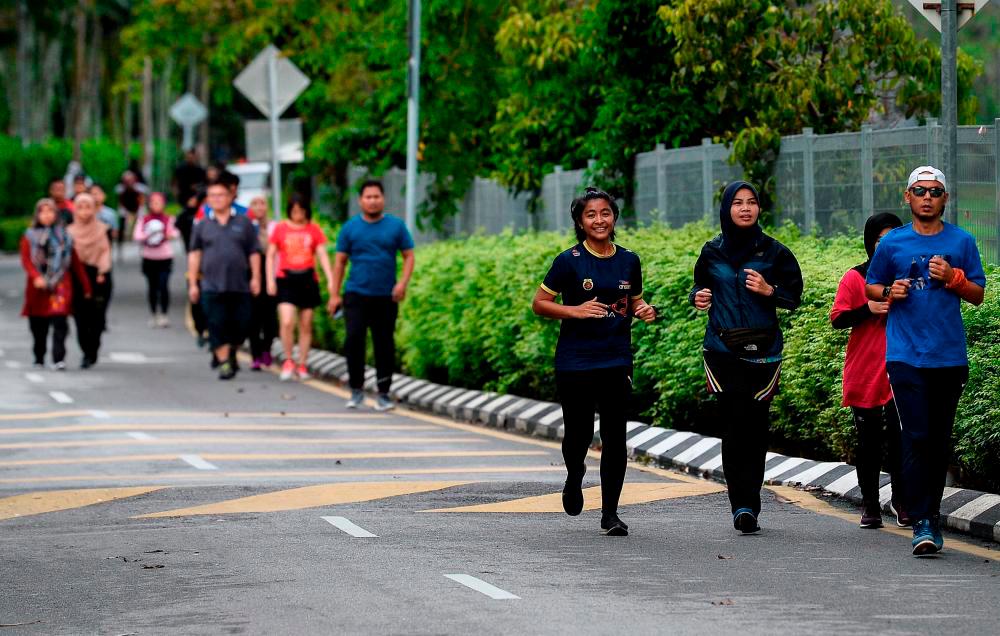WALKING is the most common mode of activity to get around in our everyday life.
Walking on our own two feet is the most greatest ability we first learned as a child.
Not just humans, but also newborn animals, especially when they learn to stand and walk on their own. It is quite a magnificent sight.
As we have seen in the news recently, the number of vehicles have outnumbered the population in Malaysia.
This shows that we have more accessible roads than pedestrian walks.
There is a lack of extensive pedestrian-friendly paths that are accessible within the proximity of living areas, especially in urban areas.
This is also worsened by the fact that one in two adults in Malaysia is now overweight based on the National Health and Morbidity Survey 2019.
This suggests that we are more comfortable living a sedentary lifestyle coupled with the advancement of technology, which is just a click away.
Whether we are walking indoors or outdoors, the act of walking itself has been proven to be beneficial.
Beethoven, Dickens, Aristotle and many other great thinkers often walked when they were deep in thought.
Walking allows us to tap into our subconscious mind and revisit our thoughts from a different perspective.
It is good for the brain as there is blood pumping oxygen, creation of new connections between brain cells allowing the growth of new neurons, enhancement of memory and reduced anxiety.
However, it may not be suitable for everyone. Some people do not work well when they are walking or moving.
They feel insecure and unsettled due to many reasons.
They like to feel safe in a specific space or area and have the same routine every day. Ultimately, everyone is different.
Recent studies have shown that people are more attentive to sound and visual targets while walking compared with standing still.
Other studies have found that there was an average increase of 60% in a person’s creativity when they went for a walk, whether it was indoor or outdoor.
The act of walking itself is key to boosting creativity and helps you to think.
The Health Ministry highly recommends the public go for walk, accumulating at least 10,000 steps a day, which is equivalent to 6.5km, and burns up to 380 calories.
Scientists at the University of Leicester in the UK suggest that brisk walking leads to better health and may slow the biological ageing process.
Forest bathing or shinrin-yoku, developed in Japan in the 1980s, suggests that it helps to reduce blood pressure, lower cortisol levels and improve concentration and memory.
By walking, we can experience and sense the world around us.
We may bump into someone we are familiar with and even end up talking to them.
This is helpful for inspiration, ideas, gratitude, connection, productivity, mindfulness and even leisure.
To reduce the carbon footprint and extreme climate changes, simple efforts such as promoting awareness on walking campaigns or providing more pedestrian-friendly paths for the public are crucial to ease the dependence on private vehicles thus, reducing overall traffic in congested areas at the city centre.
Dr Sheikh Ali Azzran is a senior lecturer for the centre of studies for construction in the Faculty of Architecture, Planning and Surveying at Universiti Teknologi Mara. Comments: letters@thesundaily.com










